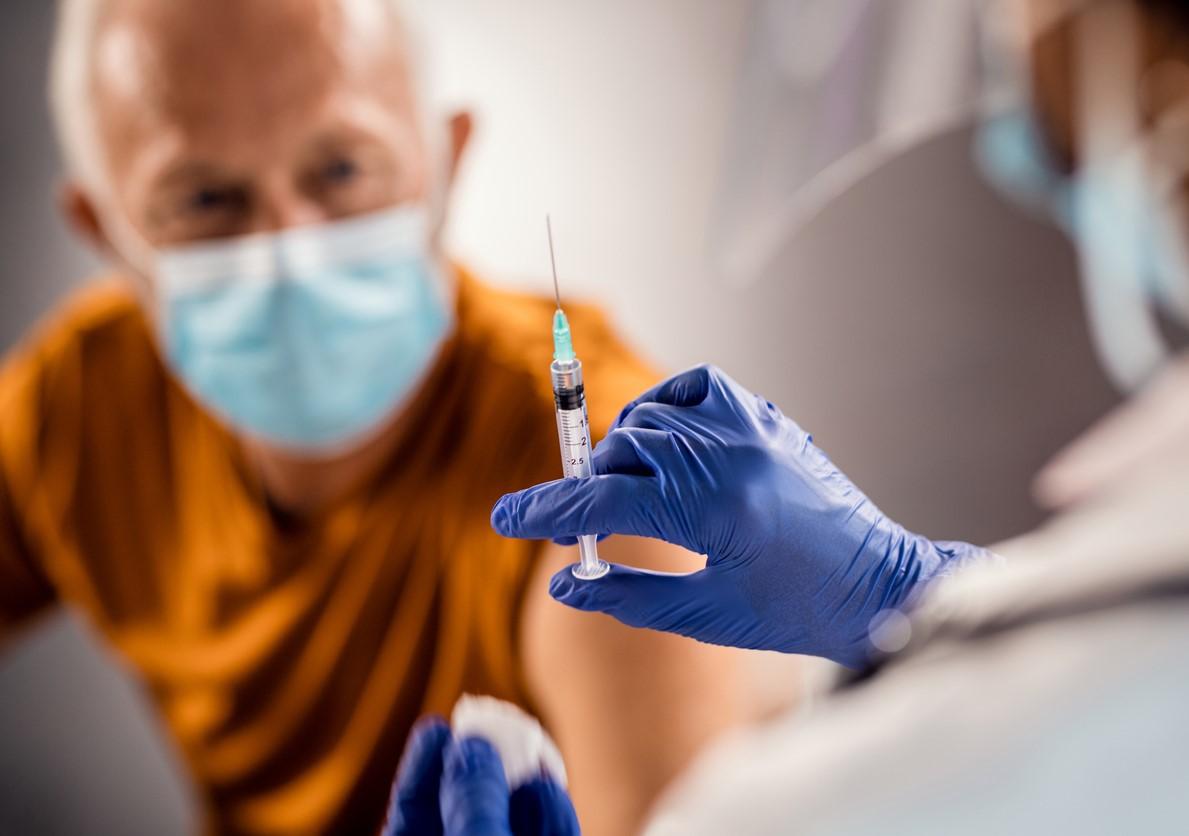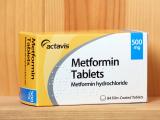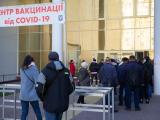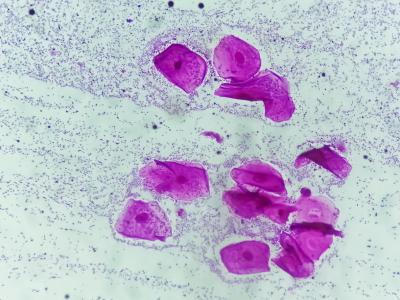A pair of observational Israeli studies yesterday in the New England Journal of Medicine find that the Pfizer-BioNTech COVID-19 vaccine booster is highly protective, with one estimating much lower rates of infection and severe illness, and the other finding a 90% lower death rate.
Infections 10 times lower among boosted
In the first study, from Jul 30 to Oct 10, 2021, a period marked by dominance of the Delta (B1617.2) variant, a team led by scientists from the Weizmann Institute of Science in Rehovot analyzed data from the Israel Ministry of Health database. The study involved 4,696,865 residents 16 years and older who had received two doses of the Pfizer COVID-19 vaccine at least 5 months before enrollment.
Israel rolled out boosters in July 2021, first in residents 60 years and older and then to everyone 12 and older.
The researchers compared rates of COVID-19 infections, severe illness, and death among residents who had received a booster dose at least 12 days earlier with those who had not received one. They also conducted a secondary analysis in which they compared case, severe illness, and death rates among those who had receive a booster 3 to 7 days before enrollment (early postbooster group).
The rate of COVID-19 infection was lower in the booster group than in the unboosted group by a factor of about 10 (range across five age-groups, 9.0 to 17.2) and was lower in the booster group than in the early postbooster group by a factor of 4.9 to 10.8. The adjusted infection rate difference ranged from 57.0 to 89.5 cases per 100,000 person-days in the primary analysis and from 34.4 to 38.3 in the secondary analysis.
Rates of severe illness were lower in the booster group in the primary analysis by a factor of 17.9 (6.5 in the secondary analysis) among residents 60 years and older and by a factor of 21.7 and 3.7 in the primary and secondary analyses, respectively, among those 40 to 59 years old.
The adjusted rate difference in the primary and secondary analyses was 5.4 and 1.9 cases, respectively, of severe illness per 100,000 person-days in the 60 and older group and 0.6 and 0.1, respectively, in the 40- to 59-year group.
The death rate in the 60 and up group was lower by a factor of 14.7 in the primary analysis and 4.9 in the secondary analysis. The adjusted rate difference between the two analyses was 2.1 and 0.8 deaths per 100,000 person-days.
The study authors said that understanding the effectiveness of the booster dose is key to informing public health policy. "Booster vaccination programs may provide a way to control transmission without costly social-distancing measures and quarantines," they wrote. "Future studies will help determine the longer-term effectiveness of the booster dose against current and emerging variants."
90% lower death rate after third dose
A separate study led by Clalit Health Services in Tel Aviv researchers used data from patients 50 years or older who had received two doses of the Pfizer COVID-19 vaccine at least 5 months before enrollment in the study, which was conducted from Aug 6 to Sep 29, 2021, when the incidence of COVID-19 in Israel was among the highest in the world.
Among the 843,208 participants, 758,118 (90%) received the booster during the study period. Average participant age was 68.5 years, 60% were 65 years and older, and the most common underlying medical conditions were high blood pressure (46%), obesity (33%), and diabetes (29%).
Sixty-five participants in the booster group died (0.16 per 100,000 persons per day), as did 137 participants in the unboosted group (2.98 per 100,000 persons per day), for a 90% lower death rate after a booster. The adjusted hazard ratio (aHR) for COVID-19 death in the booster group, relative to the unboosted group, was 0.10.
Sixty of 470,808 participants 65 and older in the booster group died, compared with 123 of 35,208 in the unboosted group (aHR, 0.009). In participants younger than 65, 5 of 287,310 in the booster group died, compared with 14 of 49,882 in the unboosted group (aHR, 0.13).
Fifty-four of 400,300 women in the booster group died, as did 13 of 47,972 in the unboosted group (aHR, 0.06). Among men, 82 of 357,818 in the booster group died, versus 52 of 37,118 in the unboosted group (aHR, 0.12).
Over the study period, 2,888 participants in the booster group and 11,108 in the unboosted group tested positive for COVID-19 (aHR, 0.17).
The study authors said that the findings may help resolve debates in some countries over whether to authorize or recommend a booster COVID-19 vaccine dose.
"Our study may provide meaningful answers to crucial questions regarding vaccination policy that remain partially unanswered by clinical trials," they wrote. "We believe that the significant findings and the observed potential for saving many lives could assist decision makers in assessing the benefit of providing the booster to broad populations, especially persons 50 years of age or older."
In some nations, primary vaccination more important
In an editorial on both studies, Minal Patel, MD, of the Centers for Disease Control and Prevention's COVID-19 Response International Task Force, interpreted their results.
"Although neither study showed a formal calculation of booster vaccine effectiveness, data from both studies indicated relative effectiveness against severe disease or death of 90 to 95%," she wrote. "This means that if the absolute effectiveness of two vaccine doses is 90%, the absolute effectiveness of two doses plus a booster is 99 to 100%."
But Patel said that in most countries, it is still more important to focus on vaccinating the unvaccinated than on boosters, citing a US study estimating that 481 people 65 years and older need a booster to prevent one hospitalization, while only 50 need to receive the first two doses to do the same. Among those 18 to 29 years, 8,738 people needed to receive a booster to prevent one hospital admission, while only 396 needed to receive the initial doses for the same effect.
"Thus, it is important that vaccination with the primary series, especially in high-risk populations, remain a top priority everywhere, because this will ultimately lead to a greater reduction in severe disease and death," she concluded.























